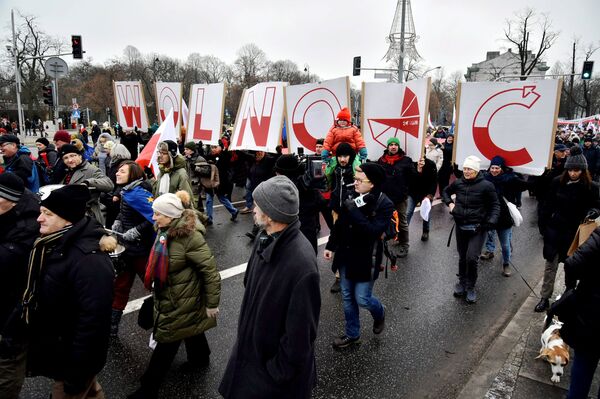European Union heads of state or government will meet in Rome, Italy, March 25, for the 60th anniversary of the Rome Treaties, during which they will sign a declaration which is intended to be the blueprint for a new EU, post-Brexit.
25. March 2017: a decisive moment for #Europe. #RomeDeclaration marks birth of EU27. We have our destiny in our hands! 🇪🇺🇪🇺🇪🇺#EU60 #FutureEU pic.twitter.com/LSYVw6K4oy
— CaroM (@MarxCaro) 20 March 2017
The draft declaration promises a "united Europe", but one which is multi-speed, or "at different rates and intensity where necessary", referring to the concept that some EU member states will look for greater integration on some matters than others.
However, Poland — which is already under threat of having its voting rights removed over its government's changes to the Constitutional Tribunal — has said it may not sign the declaration, unless more power is given back the member states' parliaments — one of the major issues in the Brexit debate.
"If the declaration does not include the issues which are priorities for Poland, we will not accept the declaration. The unity of the European Union, defense of a tight NATO cooperation, strengthening the role of national governments and the rules of the common market which cannot divide but unite — these are the four priorities which have to be included in the declaration," Polish Prime Minister Beata Szydło told TV Nowa.
Constitutional Court Crisis
In December, 2016, the commission officially warned Warsaw that it would remove its voting rights in the EU, if the Polish Government did not roll back controversial changes to its Constitutional Court. With Poland defiant in the face of the criticism — denying any "systemic threat to the rule of law", the credibility of the commission is now at stake.

Another amendment meant that the tribunal would need a two-thirds majority to take a decision on constitutional matters instead of a simple majority. The minimum number of judges needed to make a decision was also raised from nine to 13, making it more difficult to convene a quorum.
The EU's threat involves invoking Article 7 of the Treaties of the European Union, which allows for it to: "suspend certain of the rights deriving from the application of the Treaties to the Member State in question, including the voting rights of the representative of the government of that Member State in the Council." Article 7 has never — so far — been invoked against an EU state.
What is this Union all about? Let me read out Article 2 of the Treaty… #MSC2017 #EU60 / LIVE @MunSecConf https://t.co/d0vKfnHBEy pic.twitter.com/38ER1qRjUR
— Frans Timmermans (@TimmermansEU) 17 February 2017
However, Brussels is unlikely to bring sanction against Warsaw, in reality, as it would inflame an already volatile relationship.
"I think that invoking Article 7 now would be self-defeating and will not help us in the wider context of what is still going on," Commission vice president Frans Timmermans told members of the EU Civic Liberties Committee.





